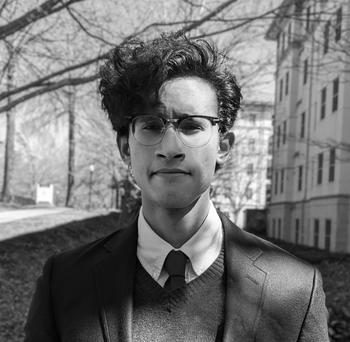Jesuit higher-ed association proposes anti-racism Examen that says White people are 'fearful,' should be 'uncomfortable'
The AJCU is proposing that Jesuit colleges hold religious exercises to advance anti-racism on their campuses.
The event is slated to include multiple prayers relating to anti-racism and a video in which one voice says some White people 'would rather live in a White dictatorship than a multi-racial democracy.'
The Association of Jesuit Colleges and Universities (AJCU) recently proposed, via the Jesuit Network, that affiliated institutions hold an anti-racism Examen on their campuses.
An Examen, in the context of Jesuit teaching, is “a devotional exercise involving reflection on and moral evaluation of one’s thoughts and conduct, typically performed on a daily basis.”
The AJCU provided an official structure for the Examen, which includes 15-minute-long video titled “Composition of Place.”
A number of claims regarding the societal relationship between Blacks and Whites are made over the course of the video. “There are White folks who would rather live in a White dictatorship than a multi-racial democracy,” one voice states in the video.
According to the video, White Americans are “fearful” of “Black self-determination,” Whites “want no part” in sharing political power with Blacks, racism exists to benefit White people, and White individuals need to be made “uncomfortable” when discussing race.
According to a document produced by the organization, the proposed exercise is to have a total duration of one to three days and focus on “the need to address anti-Black racism in ourselves, our schools, and our world.”
[RELATED: Jesuit college to host ‘queer prom’]
Following a brief period for personal introductions, attendees of the Examen are asked to join in a prayer containing excerpts such as “may all of us come to acknowledge the racism that is pervasive in our region and our nation” and “may we commit to joining together in acts of justice that will bring about equality in education, economic opportunities, law enforcement and judicial proceedings.”
The prayer, though intended for use by a Catholic institution, was written by a non-Catholic religious leader.
After the prayer concludes, participants are expected to engage with a series of 11 readings, most of which are quotations or short statements relating to anti-racist ideas. An excerpt from one of the readings states that “racism, the original sin of our country, mocks our mission and casts doubt on our commitment to human dignity.”
Students are then instructed to view the video, which addresses alleged instances of racial bias on Jesuit affiliated college campuses. The instruction manual for the Examen says that “it may be appropriate to allow for a moment of silence” at the conclusion of the video.
[RELATED: Tulane hosts anti-racism teach-in with profs divided by race]
The video opens with some general statements condemning White supremacy and anti-Black racism. As it continues, the killing of George Floyd is mentioned.
At one point, another narrator states that the values of her Jesuit institution align with her personal values as a Muslim.
Once the video concludes, students are to reflect on the contents for 5 to 6 minutes and then break into small groups to discuss their experiences with racism and thoughts on the video generally. Following this discussion period, students are allowed a 10 minute break after which another discussion is to be held for up to an hour and a half.
[RELATED: New anti-racism requirements coming for Cornell University students and faculty]
During this second discussion, participants are expected to evaluate three broad questions with one another: “What have we done to advance anti-racism?”, “What are we doing to become more anti-racist?” and “What ought we to do, to become a more anti-racist Jesuit college or university?”
To close the Examen, participants are asked to partake in a “Prayer for Racial Justice.”
28 academic institutions are affiliated with AJCU, including notable colleges such as Georgetown University, Gonzaga University, Fordham University, Boston College and the College of the Holy Cross.
No university mentioned or the AJCU has returned Campus Reform’s request for comment, this article will be updated as they respond.

